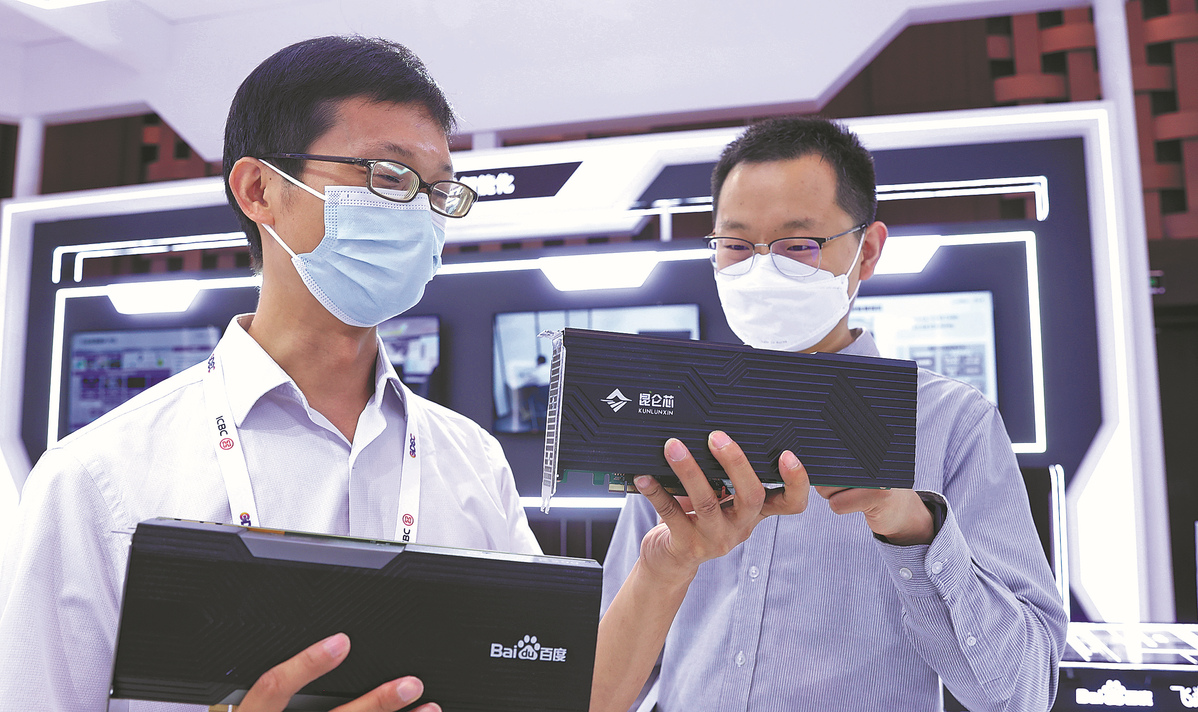
Chinese enterprises are at a crucial juncture of breakthroughs in artificial intelligence, as generative AI and other rapidly evolving technologies usher in a future for business where the physical and digital worlds are inextricably linked, global consultancy Accenture said in a report.
According to the report, 91 percent of the business executives surveyed in the country agreed that AI foundation models will play an important role in their organization's strategies over the next three to five years.
About 80 percent of business leaders believed advancements in generative AI are opening a new era of intelligence for enterprises, while 77 percent said AI models will enable connections across various types of data, revolutionizing where and how AI is used.
The research surveyed 225 Chinese companies in 19 industries, including retail, software, industrial goods and equipment, healthcare, energy and financial services from December 2022 to January 2023.
Generative AI refers to algorithms that are trained with huge amounts of data and capable of generating content such as images, text, audio and video. It is the key technology underpinning ChatGPT, an AI chatbot developed by US-based AI research company OpenAI.
The meteoric rise of ChatGPT has captivated the world's attention on the power of generative AI to augment human capability, the report said.
Accenture estimates that as much as 40 percent of all working hours will be supported or augmented by language-based AI.
"The next decade will be defined by three mega technology trends — cloud, metaverse and AI — which collectively will collapse the distance of our digital and physical worlds," said Yu Yi, technology lead for Accenture China.
"As generative AI will have far-reaching impact, business leaders must act immediately and scale up investments in data, talent and customized AI models to meet the unique needs of enterprises," Yu said.
Most Chinese executives agreed that generative AI will spark significant creativity and innovation and usher in a new era of enterprise intelligence, Yu added.
They also said their companies expect quick large-scale analysis abilities and accelerated innovation to be two major benefits from the use of AI models.
Generative AI is expected to usher in speedy growth in China and inject fresh momentum into a new round of industrial revolution, as major Chinese tech heavyweights step up efforts to develop their own AI-powered large models, experts said.
Alibaba Group unveiled its AI-powered large language model Tongyi Qianwen in April, a potential rival to ChatGPT. In March, Baidu Inc rolled out its large language model and Chinese-language ChatGPT alternative, Ernie Bot, which can be used for a variety of functions including searches, autonomous driving and smart devices.
"We believe the emergence of generative AI and large language models presents a transformative potential of AI in various industries to help people and organizations achieve more and have a positive impact on society," said Robin Li, co-founder and CEO of Chinese tech giant Baidu.
Chinese tech companies have the advantage of offering users AI-powered conversational results based on Chinese language and culture, said Lu Yanxia, research director at IDC China.
"Generative AI has brought new business opportunities for domestic AI servers, cloud computing and chip companies," Lu said.
AI and ChatGPT-related technologies are likely to free humans from tedious tasks and enable them to focus on creative thinking, resulting in significant application potential in fields such as culture, retail, finance, healthcare and education, she added.
Data from global market research company International Data Corp show that China's spending on AI will likely hit $14.75 billion this year, accounting for about one-tenth of the global market. The scale of China's AI market is expected to reach $26.44 billion in 2026, with a compound annual growth rate of more than 20 percent from 2021 to 2026.

